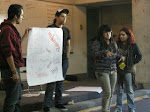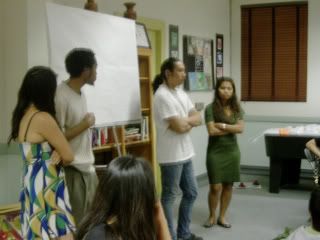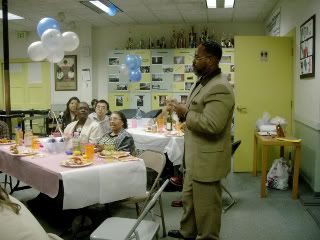
We started the day off with a Spiritual Discipline workshop on Non-Violent Communication, a practice passed down through the teachings of Ghandi and Martin Luther King Jr. Segal, a trainer from the Bay Area Non-Violent Coalition, introduced us to a new way of looking at why people do things. According to the non-violent paradigm, why do people do what they do (including things we see as positive and negative: volunteering, starting a romantic relationship, stealing, joining a gang)? They are trying to get their basic human needs met. Basic human needs are things like love, respect, support, safety, community, belonging, contribution, consideration, balance, and having enough food and resources to survive. Why do people do things like steal and murder? They are trying to get one or more of their basic human needs met.

Segal taught us that it's important to separate what people's needs are (needs) from how they are trying to meet them (strategy). Sometimes, people's strategies are destructive and hurt other people. If we can empathize with other people, see their actions as a means to get their basic human needs met, and identify these needs, we can work out a strategy that gets everybody's needs met. So, in pairs, we practiced being present for each other, being active listeners, and identifying each other's needs.
"When there's a power difference," Segal said, "you can either respond with force or you can connect with the other." Non-violent communication is about choosing to connect with the other, empathize, and see each other's humanity.





No comments:
Post a Comment